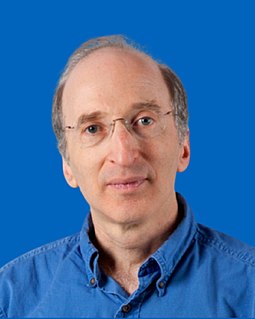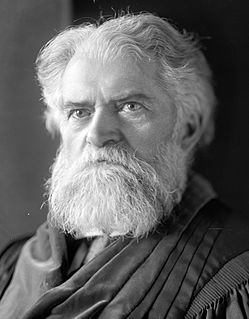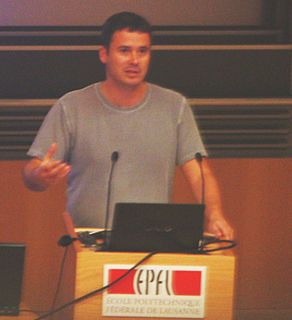A Quote by Alan Guth
If you consider the universe one second after the Big Bang, the expansion rate would have to have been just right to an accuracy of 15 decimal places, or else the universe would really not work.
Related Quotes
If the rate of expansion one second after the Big Bang had been smaller by even one part in a hundred thousand million million, it would have recollapsed before it reached its present size. On the other hand, if it had been greater by a part in a million, the universe would have expanded too rapidly for stars and planets to form.
One can imagine that God created the universe at literally any time in the past. On the other hand, if the universe is expanding, there may be physical reasons why there had to be a beginning. One could imagine that God created the universe at the instant of the big bang, or even afterwards in just such a way as to make it look as though there had been a big bang, but it would be meaningless to suppose that it was created before the big bang. An expanding universe does not preclude a creator, but it does place limits on when he might have carried out his job!
The gravitational constant, if it were off by one part in a hundred million million, then the expansion of the universe after the Big Bang would not have occurred in the fashion that was necessary for life to occur. When you look at that evidence, it is very difficult to adopt the view that this was just chance.
Observations indicate that the universe is expanding at an ever-increasing rate. It will expand forever, getting emptier and darker. Although the universe doesn’t have an end, it had a beginning in the Big Bang. One might ask what is before that but the answer is that there is nowhere before the Big Bang just as there is nowhere south of the South Pole.
Of course, Jastrow's comment is exaggerated at best; theologians hardly predicted the Big Bang. If our universe turns out to be closed, hence with an end, this does not mean apocalyptic visions of the end of the world were on target. And even if a beginning for the universe is a successful prediction of one version of theism, this is still not that impressive. After all, even a stopped clock is right twice a day. The Big Bang becomes strong support for God only with an argument showing that such a beginning requires a Creator.
For myself, I like a universe that, includes much that is unknown and, at the same time, much that is knowable. A universe in which everything is known would be static and dull, as boring as the heaven of some weak-minded theologians. A universe that is unknowable is no fit place for a thinking being. The ideal universe for us is one very much like the universe we inhabit. And I would guess that this is not really much of a coincidence.
Inflation is really like drugging the baby universe with speed. The supercool union of the hitherto unfriendly gods was blessed by amphetamine, and this made the universe inflate rather than just expand. The early orgy of expansion in the universe comes to an abrupt end as soon as the supercooled particle stuff finally freezes.
Our entire universe emerged from a point smaller than a single atom. Space itself exploded in a cosmic fire, launching the expansion of the universe and giving birth to all the energy and all the matter we know today. I know that sounds crazy, but there’s strong observational evidence to support the Big Bang theory. And it includes the amount of helium in the cosmos and the glow of radio waves left over from the explosion.
The Universe is responding purely to the desire that you have right now, and if the desires that you have right now are pure and unencumbered by all of your excuses about why you're not where you want to be, your vibration would be pure and the Universe would yield to you easily and it would not take years or weeks or days. It would be instant manifestation.






























